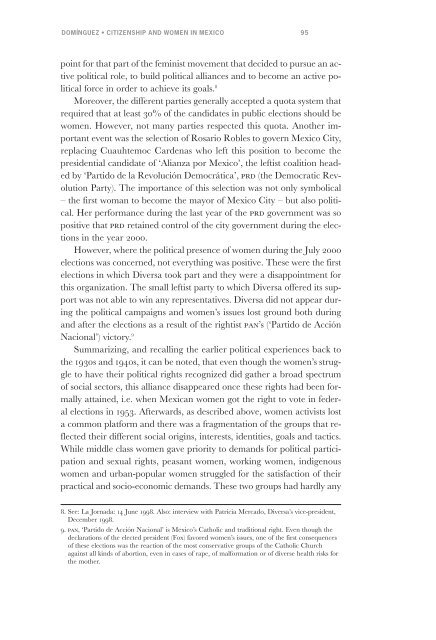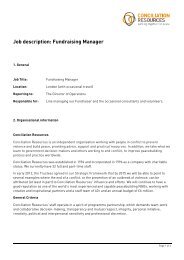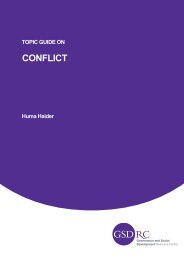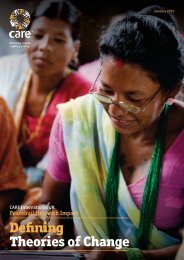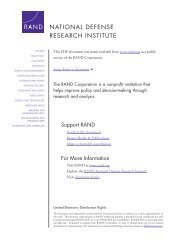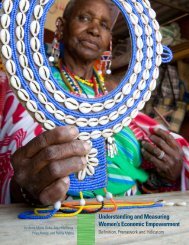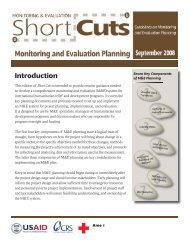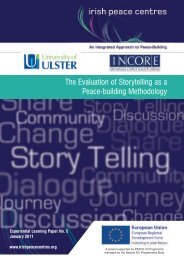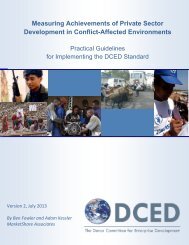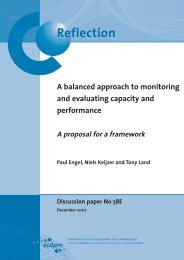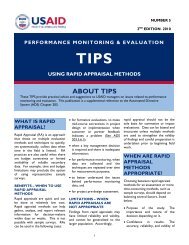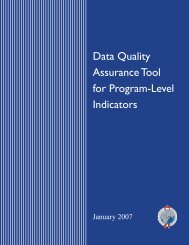Discussing Women's Empowerment - Sida
Discussing Women's Empowerment - Sida
Discussing Women's Empowerment - Sida
You also want an ePaper? Increase the reach of your titles
YUMPU automatically turns print PDFs into web optimized ePapers that Google loves.
DOMÍNGUEZ • CITIZENSHIP AND WOMEN IN MEXICO 95<br />
point for that part of the feminist movement that decided to pursue an active<br />
political role, to build political alliances and to become an active political<br />
force in order to achieve its goals. 8<br />
Moreover, the different parties generally accepted a quota system that<br />
required that at least 30% of the candidates in public elections should be<br />
women. However, not many parties respected this quota. Another important<br />
event was the selection of Rosario Robles to govern Mexico City,<br />
replacing Cuauhtemoc Cardenas who left this position to become the<br />
presidential candidate of ‘Alianza por Mexico’, the leftist coalition headed<br />
by ‘Partido de la Revolución Democrática’, PRD (the Democratic Revolution<br />
Party). The importance of this selection was not only symbolical<br />
– the first woman to become the mayor of Mexico City – but also political.<br />
Her performance during the last year of the PRD government was so<br />
positive that PRD retained control of the city government during the elections<br />
in the year 2000.<br />
However, where the political presence of women during the July 2000<br />
elections was concerned, not everything was positive. These were the first<br />
elections in which Diversa took part and they were a disappointment for<br />
this organization. The small leftist party to which Diversa offered its support<br />
was not able to win any representatives. Diversa did not appear during<br />
the political campaigns and women’s issues lost ground both during<br />
and after the elections as a result of the rightist PAN’s (‘Partido de Acción<br />
Nacional’) victory. 9<br />
Summarizing, and recalling the earlier political experiences back to<br />
the 1930s and 1940s, it can be noted, that even though the women’s struggle<br />
to have their political rights recognized did gather a broad spectrum<br />
of social sectors, this alliance disappeared once these rights had been formally<br />
attained, i.e. when Mexican women got the right to vote in federal<br />
elections in 1953. Afterwards, as described above, women activists lost<br />
a common platform and there was a fragmentation of the groups that reflected<br />
their different social origins, interests, identities, goals and tactics.<br />
While middle class women gave priority to demands for political participation<br />
and sexual rights, peasant women, working women, indigenous<br />
women and urban-popular women struggled for the satisfaction of their<br />
practical and socio-economic demands. These two groups had hardly any<br />
8. See: La Jornada: 14 June 1998. Also: interview with Patricia Mercado, Diversa’s vice-president,<br />
December 1998.<br />
9. PAN, ‘Partido de Acción Nacional’ is Mexico’s Catholic and traditional right. Even though the<br />
declarations of the elected president (Fox) favored women’s issues, one of the first consequences<br />
of these elections was the reaction of the most conservative groups of the Catholic Church<br />
against all kinds of abortion, even in cases of rape, of malformation or of diverse health risks for<br />
the mother.


